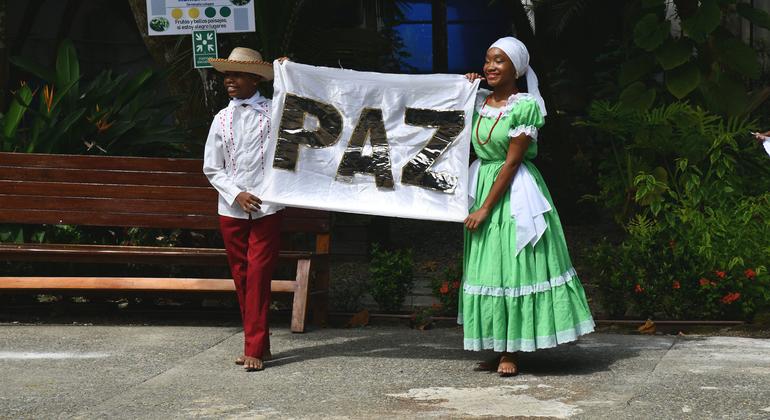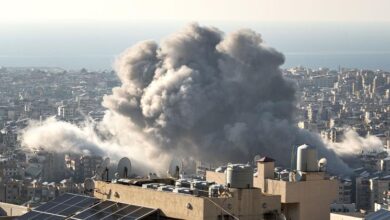Security Council hears that instability is the main obstacle to implementing the Colombia Peace Agreement


The 2016 agreement between the national government and the FARC-EP armed group effectively ended more than five decades of conflict, but violence continues.
Hundreds of signatories were killed.
UN Special Representative Carlos Ruiz Massieu told ambassadors that “Insecurity is clearly the main obstacle to reintegration. and the success of the Peace Agreement”.
He said 421 signatories had been killed since the treaty was signed.
“In this context, I cannot but reiterate the Secretary-General’s call that all parties to the conflict must respect the lives, well-being and freedoms of communities and people who have chosen the path of peace,” he said.
Challenges to stability
The UN Special Envoy recalled the courage of thousands of veterans who laid down their arms, as well as the important work of the Government in supporting veterans and their families.
“However, the challenge remains to ensure the sustainability of the reintegration process in the long term, provide adequate housing, access to land, security and combat discrimination against them,” he said.
The peace accord included provisions for rural reform, but progress has been sluggish until recently.
While praising the Government’s efforts to prioritise the issue, as evidenced by the expansion of the budget and land acquisition, he said more momentum was needed to achieve the three million hectare target set under the agreement.
He also called for a continued focus on ethnic issues, another area of the Agreement where implementation has lagged.
‘Complex conflict dynamics’
Mr. Ruiz Massieu noted that after the Agreement was signed, the violence in these territories was short-lived, thus creating conditions for other armed groups to gradually expand their activities until today.
“As a result, there are now complex conflicts in different areas and they affect the daily lives of communities, especially indigenous and Afro-Colombian communities,” he said.
He added that the delay in implementing all agreed security measures also contributed to the prolongation of violence.
Ensuring security, strengthening the presence of the State
The complexity of the violence affecting Colombia requires a multi-pronged response, a senior United Nations official said.
“Communities need to implement the security guarantees provided for in the Agreement in the context of increased State presence, along with agreed violence reduction measures in the context of various dialogue initiatives underway between the Government and other groups,” he said.
Making these efforts is both necessary and strategic for achieving peace, and He stressed the role of the United Nations in promoting the development of such efforts..
Support dialogue
The United Nations has also responded to calls to support current dialogue initiatives, including the one between the Government and the ELN, the largest remaining rebel group, he added.
“Given the current crisis, I encourage the parties to meet the expectations of Colombian society and overcome the current paralysis on the table,” he said.
Mr Ruiz Massieu told the ambassadors that territorial development measures were being established in some areas of the country following negotiations between the Government and some parts of another armed group, the EMC, founded by former FARC members who rejected the peace deal.
“At the same time, these discussions are facing significant challenges due to the group’s divisions and the resurgence of violence in other areas,” he said.
He also welcomed the start of peace talks last month in Venezuela between the government and Segunda Marqueta, a group of FARC dissidents.
“I call on the parties to establish a solid foundation so that this process can contribute to breaking the cycle of violence that especially affects civilians and move towards peace in Colombia,” he said.
Trust in Government
Colombian President Gustavo Petro also attended the Council meeting and Mr. Ruiz Massieu acknowledged his commitment to consolidating peace.
“Colombia’s peacebuilding efforts are diverse and have yielded some encouraging results while significant challenges remain,” he said, stressing the urgency of implementing the peace agreement.
“I am confident that the Government led by President Petro will lead a joint effort with all state agencies to achieve its far-reaching goals.”




